Some science fiction books I carry in my heart and mind wherever I go for quite a few years now. Consider it a condensed book review.
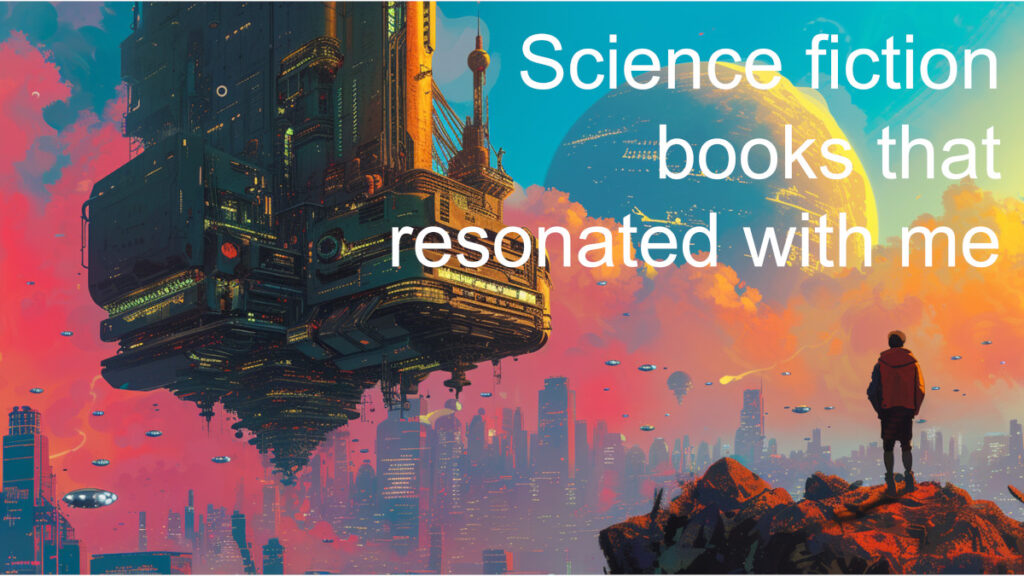
I am a sucker for science fiction books. About 15 years ago, when I had a blog on RADVISION’s website, I even wrote a post about how writers envisioned video conferencing in science fiction books. Alas, that post has died, along with the RADVISION blogs, years ago.
Last week I sat down in the car with my daughter, ending up talking about books. It dawned on me that there are several that have stuck with me throughout the years and resonated. Books that keep me thinking even today.
This time, I decided to share them here. Unrelated to WebRTC, video, CPaaS or communication technologies. Just something I wanted to share 🤷♂️
And yes. All links are affiliated – my Kindle needs a few new good science fiction books 😉
They’re brought here in no specific order (alphabetically…)
Table of contents
Blood Music / Greg Bear
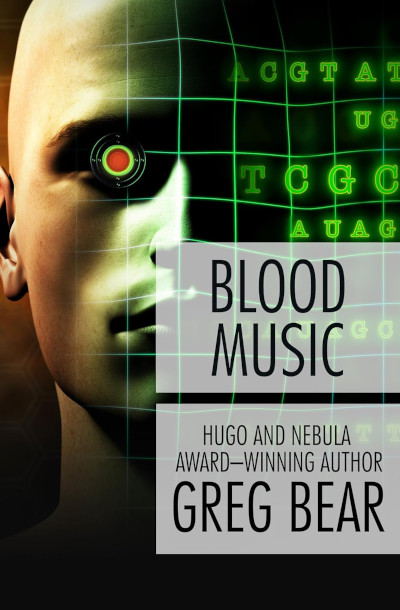
Greg Bear has many great books. Blood Music is definitely one of them (I had to decide if I suggest this one on Drawin’s Radio – ending up with this one).
What I like about this one is how it combines miniaturization with biology. I know nothing about biology and what I do know about technology and miniaturization is by using computers.
This was a compelling read and a really interesting one of what happens at the extreme ends of connecting the dots between these two things.
It also resonated with my own philosophical thoughts about the difference in depiction and scale between the makings of atoms to the whole universe. To understand this specific sentence, reading Blood Music by Greg Bear is likely needed.
Daemon / Daniel Suarez
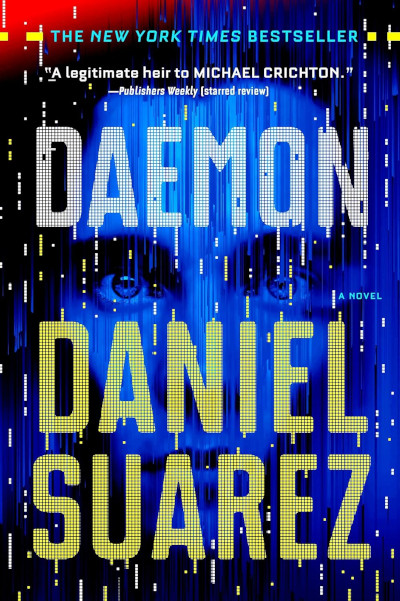
LLMs, chatbots, AI. This book has it all.
One of my previous managers suggested I read that, and he was spot on. It takes the angle of how the gaming industry and its NPCs (Non Player Characters) can make a difference if they are “let loose” in the world.
It takes the technologies we have today (or rather a few years ago) and tries to prophesize where we will be with them. Definitely a few misses in where we are headed, but a lot to think about.
Especially when the time to decide who works for who – the machine for us or us for the machine.
Go read Daemon by Daniel Suarez
Ender’s Game / Orson Scott Card
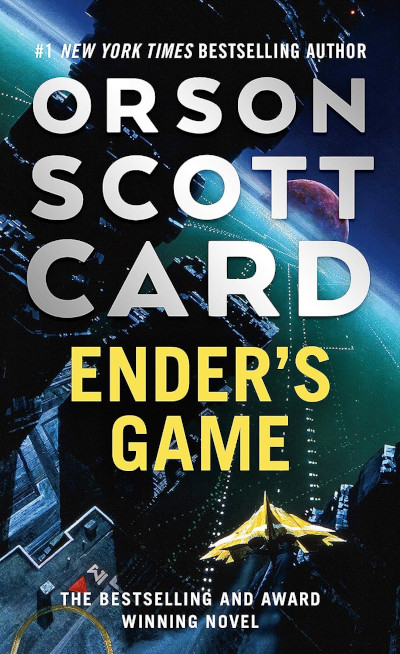
This is the second or third science fiction book I read in English and it got me onto the path of reading in English a lot. A roommate at the university gave it to me to read and said “it is about a small kid that saves the world”.
Besides the science fiction part of the book, how it covers bullying and the way to win in wars is interesting. I like how Orson outlines the story.
A few years after reading it, Orson Scott Card came to Israel for an event. I went there with a colleague from work for the book signing event, standing two hours in line for one minute with Orson. He gave me his full attention and was surprised at the book I brought to sign (Enchantment – it isn’t in this list since it is fantasy and not science fiction).
Anyway, Orson Scot Card is always a good read and Enter’s Game is a great starting point.
Expendable / James Alan Gardner
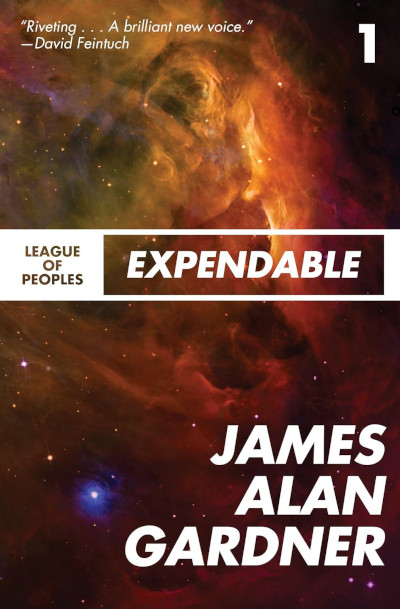
This is one enjoyable read. It took me into this riveting series of books by James Alan Gardner.
To put it short, explorers are expendable. They are dropped into new worlds to explore, and the reason they were selected is because they are deformed in one way or another but smart. So instead of fixing their external deformity (or ugliness), they are used as explorers. Why? Because if they looked good – they wouldn’t be expendable. Their death might matter to someone.
The rest of the series revolves around nanotech and AI. Or magic. Or something in between.
This is a lot less about ruminating about the books afterwards and more about enjoying the read – go read Expendable by James Alan Gardner.
Old Man’s War / John Sclazi
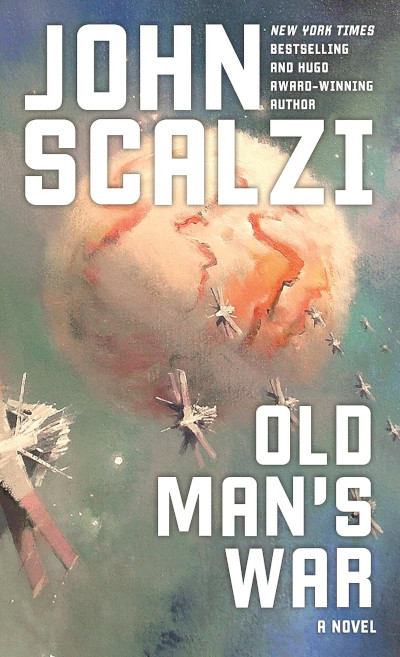
John Sclazi is another master storyteller (at least for me). Old Man’s War marks the beginning of a great series of many books (and not the only ones I love from John Sclazi).
Old Man’s War places humanity in a universe full of alien life – most of it warring in nature (or at least that’s the initial premise of it all). The way to build an army, the solution is to take the elderly and have them undergo a physical change, essentially taking them a bit apart from the rest of humanity and turning them into soldiers.
Since Earth is kept a wee bit back in its technology, they’ve seen most of what there is in life already and are old. So getting a younger body is all that is needed to recruit them for the cause.
The more I get older (age 40 was especially rough – it is when I started breaking in the seams or so it seems), the more I think about this series of books – and how I wish (or don’t wish) to be young again.
This series, as well as many of his other books are a joy to read – Old Man’s War by John Sclazi
Ready player one / Ernest Cline
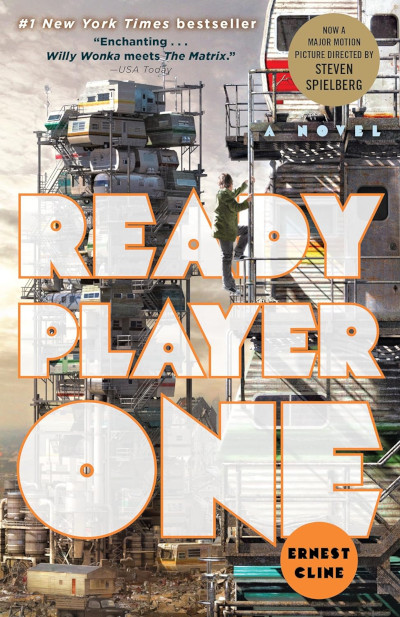
Skip the movie. Read the book.
This has the word metaverse all over it. If you read Snow Crash by Neal Sephenson then you’ll want to read this one. And if you haven’t then just go read them both 🤷♂️
Besides the part of metaverse, large corp and all that stuff we’re here to ponder, what really sets this book apart is the treasure trove that it is for nostalgy. If you are 40 years or older, know what a Commodore 64 is, played Pac Man on a handheld device before there was such a thing as a PC, then you’ll find your youth inside this book. For me, this was a true joy to read.
Oh, and I just started reading Ready Player Two (noticed that when I went searching for the books I loved for this article).
Go read Ready Player One by Ernest Cline.
The Peace War / Vernor Vinge
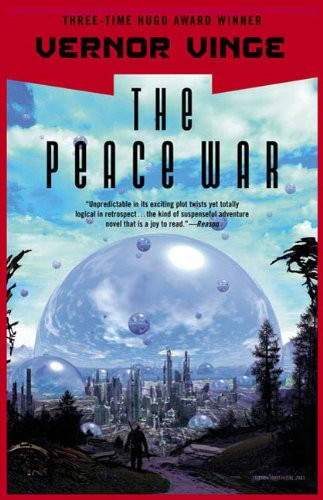
If you know Vernor Vinge as a scifi writer then you don’t need me for this one. If you read scifi and haven’t read a Vernor Vinge book then you should. In such a case, The Peace War is a great place to start.
This one is about technology and fighting wars with the resources you have. Where one side rules all the other goes and miniaturizes stuff.
This, as well as many of his other books just float in my head and come out from time to time (especially books like A Fire Upon The Deep or Rainbows End, both from the point of view of communication technologies and artificial intelligence).
Anyways, just go read The Peace War by Vernor Vinge. Or any other book by Vernor Vinge for that matter…
The Speed of Dark / Elizabeth Moon
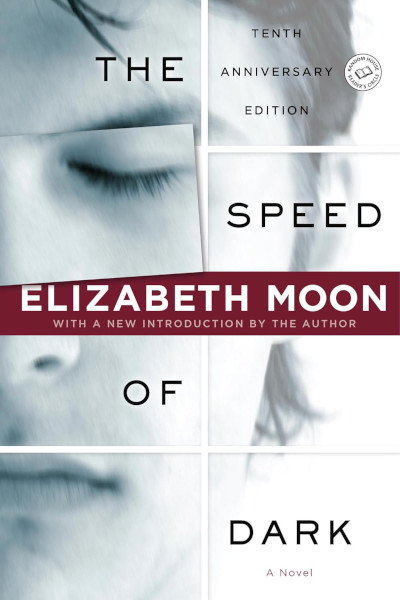
This book touched me in many ways. It isn’t exactly science fiction – it is mostly the effect improvements in healthcare on moral decisions we need to take.
In this case, it is about the last autistic people in the world, after autism is all but eradicated, and what it means for an autistic adult to decide to “heal”. Would that be a good thing for him? A bad one? Will he stay the same person?
And all of that written from the point of view of the autistic person.
I truly loved this one and walked around with the baggage it left in me afterwards. Highly recommended – The Speed of Dark / Elizabeth Moon.
Winter World / A.G. Riddle
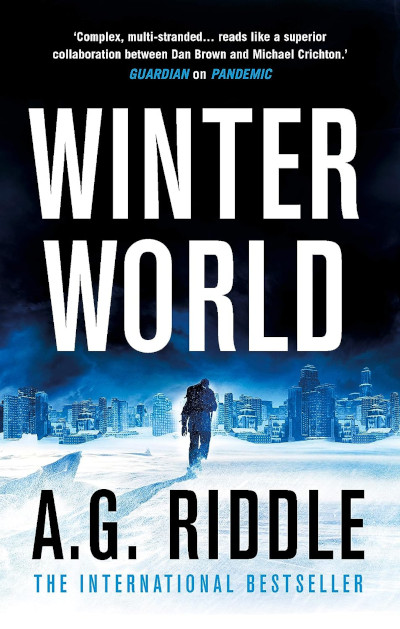
I read this one last winter… and it got me into the mood of winter and kept me there. All dark and cold. This book (and the series) is so well written. You can just feel the cold and the darkness as you read it.
The story is about our earth, dealing with climate change – one where the sun just gets blotted out of the sky until it is no more visible. At least that’s the first book. It is about choices – technological and human ones. And about our will to survive.
I’ll just leave it at that and say that this winter here is cold as well. And it got me thinking about this book series again.
Go read Winter World by A.G Riddle.
Wool / Hugh Howey
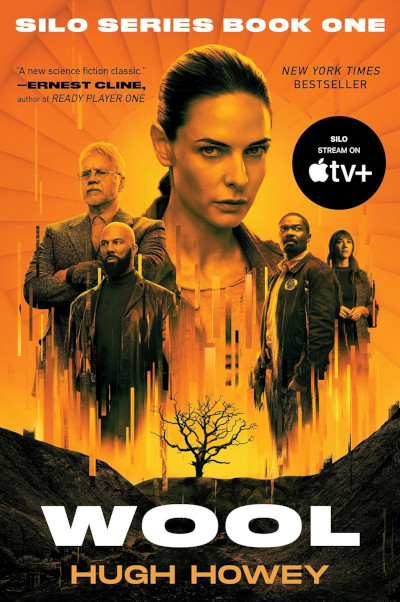
No. I haven’t seen it on Apple TV. I read the book and then all 3 books in this series. And then the rest of the Silo stories available. It is that riveting.
This is less about technology (at least the first book) and more about the human condition and how technology affects it. Like many of the other books in this article that I am recommending, this series is also dystopian in nature. It isn’t that I like my books bleak – it is just that the bleak ones stick with me longer and cause me to think about my day to day a lot more.
Anyways, go read Wool by Hugh Howey.
Your turn
Got any books you think I should be reading? Science fiction and fantasy would be great:
- For fantasy more single book experiences (think Enchantment by Orson Scott Card or Neverwhere by Neil Gaiman)
- For Science fiction I am quite comfortable with series of books
Now I need to get back to Ready Player Two 😉
I’ll be back to the usual communication technology articles next time.

Parable of the Sower and Parable of the Talents by Octavia Butler. They're a little too prescient to be considered dystopian anymore, though.
Thanks! Definitely adding to my reading list
We run an online Sci-fi book club – you'd be welcome to come to one of our meetings (although I think it might be a bit late for you!)
Here's a list of books we have read (with scores) https://mcrscifi.wordpress.com/previous-scifi-books/
Here are some books we rated highly that aren't on your list:
A Memory Called Empire by Arkady Martine
A Closed and Common Orbit by Becky Chambers
Ancillary Justice by Ann Leckie
The Fifth Season by NK Jemisin
Hey Tim – thanks a bunch!
I’ll skip the book club I guess. Which of the 4 books would you say I should start with?
I think "A Closed And Common Orbit" – It's a fantastic standalone book, but it is set in a milieu for in which there are previous and subsequent books, so there is (if I recall) a small spoiler to a previous book.
The best hard science fiction book I know is 'The Three-Body Problem' by Liu Cixin. It contains many scientifically and philosophically interesting topics.
Buying it for my Kindle – thanks!
My recommendation is anything by Neal Asher. Start with Gridlinked for the Cormac Series or The Skinner for the Spatterjay series. I also liked the standalone The Owner trilogy. I also enjoy military science fiction such as The Lost Fleet series by Jack Campbell start with Dauntless. Lastly, the Expanse series.
Jack Campbell The Lost Fleet was good. Read them all and loved them, though not sure anything stuck besides it being enjoyable to be frank.
I’ll check out Neal Asher – thanks!
My most influential list:
Foundation by Isaac Asimov, I'll share just one quote "Violence is the last refuge of the incompetent." but there is more to it 🙂
The Disspossed by Ursula K. Le Guin, a brilliant comparison of 2 very distinctively different societies. I wish I read this earlier in my life.
The expanse series by James SA Corey, it is really amusing and kind a is a extrapolation where our current way of life will end up if we manage to colonize space.
The Dune by Frank Herbert, It's because of this series that I am still reading SiFi. It blends political intrigue, ecological influence, philosophy and much much more. Though I would only keep to works of Frank Herbert, not who ever picked up the series after Frank's untimely departure.
Thanks for this Vojin!
I read Dune early in life. Likely too early to make it influential – the important parts probably went over my head at the time.
I’ll check the rest.
If you can read French or Dutch authors, I recommend 'les imparfaits" from Ewoud Kieft : 2060. Gena, the algorithm that serves as his personal assistant, tells us the story of Cas, who has grown up in a hygienic, idle and controlled society, and discovers the "Imperfects", a caste of outsiders who reject this evolution.
Not my languages I am afraid. Sounds somewhat similar to Brave New World by Aldous Huxley – not the personal assistant part, but the caste of outsiders part of it.
I am surpised to not find Isaac Azimov on the list 😉
And William Gibson's Newromancer Trilogy…
Read little of Asimov to be frank
Don't believe I've read William Gibson. Yes 🙂